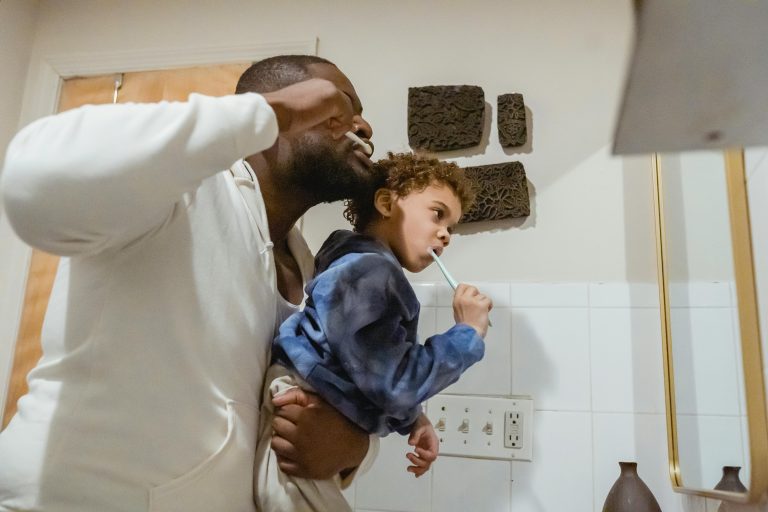Activities for Toddlers that Are Fun and Educational

Toys and educational materials for toddlers might evolve over time, but the fundamental principles behind them remain the same. Your child’s early years are critical in their overall development process, and you want to provide them with the most interesting and useful activities possible during this vital period.
Rather than focusing on particular gadgets or technological advancements, it is worthwhile to step back and think about the fundamentals of educational activities at a young age. Once you are sufficiently grounded in these principles, you will be able to apply them in any way you see fit.

Remember the underlying growth factors
Before you think about any particular activities or types of activities that you do with your toddlers, remember the basic things that they like to do during their early years. Toddlers are exploring the world for the first time, so they are working on things like balance, developing hand-eye coordination, and learning to explore their imaginations. Everything that they do at this age fundamentally has to do with these developments.
It is also important that you give your toddlers the right atmosphere. If your home isn’t clean or tidy, your child will feel it. You might need window replacement Richmond, or perhaps a fresh coat of paint to make your child’s play areas feel more lively.
Puzzles
Educational companies are constantly coming out with more and more clever puzzles for kids (and adults!), but the fundamental concept is always the same. Kids love putting things together and seeing how they fit. Whether it be wooden puzzles, shape sorters of different kinds, or anything else that involves putting together parts in a logical order, this is an activity that is both fun and useful for kids.
The earlier your child gets started with activities like this, the more capable they will be of mastering harder ones later on.
Sensory activities
As mentioned above, kids love to touch things. Rather than letting them destroy the kitchen in their textile adventures, there are activities that you can employ that will allow your child to develop their senses in fun and nondestructive ways.
You can help your child by showing them how physical objects work.
- When you are playing in the sandbox, illustrate how to create a tower, rather than simply letting them play all the time (free play I’d also good, but not all the time).
- When you’re in the water, show your child what it is like to fill and empty containers.
- Invest in toys that involve physical processes so that your child can get a head start on fulfilling physical tasks
Before long, they will want to repeat these processes. And this is very useful in helping kids understand how processes work.
Obstacle courses
Kids of all ages love obstacle courses. They don’t have to be super complex when your child is only 18 months old, but you can start your child with basic jumping, climbing, and related exercises as soon as they start to walk.
Even if you can’t take your little one to baby gymnastics classes, you can create mini courses at home using basic household objects. Having them climb on pillows, jump from one place to another, and even start rolling over is excellent for your child’s physical development. If you do have the opportunity to enroll in baby gymnastics, your child will be in heaven. These days, sports manufacturers have come up with fantastic types of mini trampolines, donuts, blocks, etc that can keep your child occupied for hours.
Reading
Ok, they won’t be reading literature at age two. But what you can do with them is sit and read to them while they look at picture books. Repeating the names of objects (animals, etc) can help solidify language concepts in your child’s mind and prepare them for their own reading later on. You can also get books with tactile objects so that your child can interact with the process more and feel like they are a part of the experience.
Making a regular habit of reading with your little one can get them into the mode of being around books. Carve out a cosy little nook beside a nice window in your living room that your child knows is the reading place. This is essential training for later in life.
Imitating
There are lots of games that you can play with toddlers that involve imitating. Kids love to do this, so you can start training them early on in songs and actions that aid in their linguistic and physical development.
Games such as Simon Says, Ring Around the Rosie, and similar ones show children the importance of following rules and patterns, and they do it in a fun way that children enjoy. Games like Patty Cake teach them hand-eye coordination and how to anticipate actions.
Start early, and your kid will love to learn
You don’t want to be an uber-parent. No one is telling you to force quantum physics on your kid the moment they say their first word. But there are definitely particular types of activities that are extremely beneficial for kids at a young age, and which will help them develop physically, mentally, and have fun at the same time. Every kid is different, so watch how yours develops and vary what you do together based upon their preferences and natural tendencies. Make a mental note of what kinds of things they tend to be proficient at so that you can remember as they grow. Most importantly, let them explore and enjoy the freedom that is youth.






